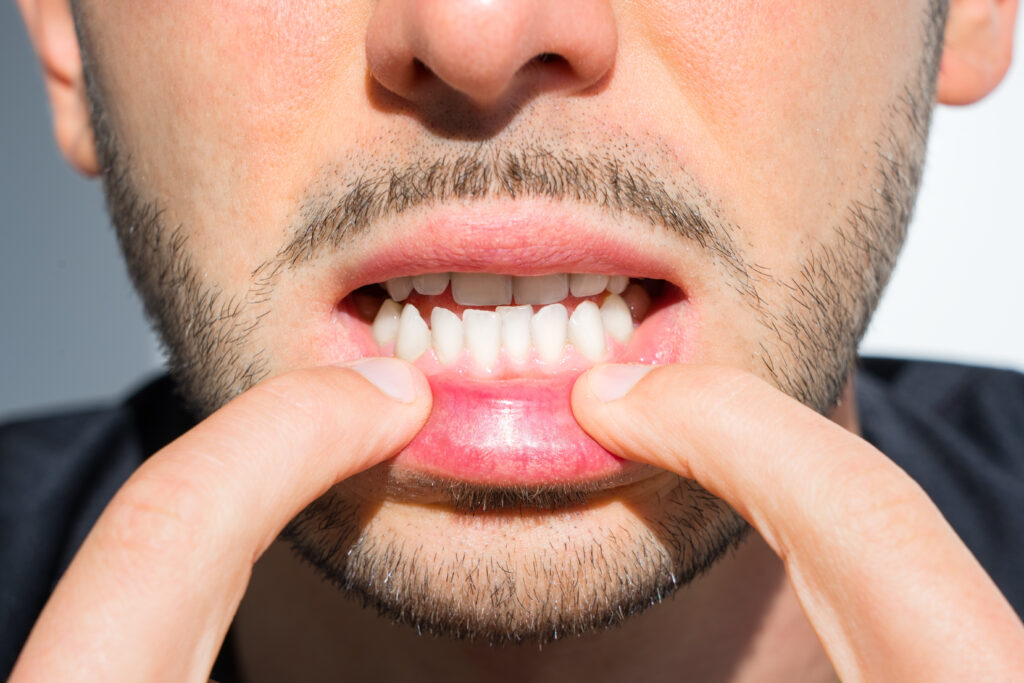What Causes Crooked Teeth?

Crooked teeth are one of the most common reasons people seek orthodontic treatment. Whether it’s for cosmetic reasons, improved oral health, or better function, understanding why teeth become crooked in the first place can help you take proactive steps toward prevention and treatment.
At HOM Orthodontics, we believe that educating our patients is just as important as providing excellent care. Let’s take a look at the many factors—genetic and environmental—that can lead to crooked teeth.
Genetic Influences: The Smile You’re Born With
One of the most significant contributors to crooked teeth is genetics. If your parents or grandparents had misaligned teeth, there’s a higher chance you may develop similar issues. Genetics can influence several oral features such as:
- Jaw size and shape: A small jaw may not have enough room for all your teeth, causing crowding.
- Tooth size: Oversized or undersized teeth can affect spacing and alignment.
- Facial bone structure: The development of your skull and jaw can impact how your teeth line up.
- Inherited bite problems: Overbites, underbites, and crossbites can all be passed down through family lines.
Even the straightest smiles in your family don’t guarantee perfect alignment, but heredity often plays a strong role.
Childhood Habits: What We Do Matters
In addition to genetics, early habits during childhood can significantly affect tooth alignment. Some of the most common include:
Thumb Sucking and Pacifier Use
These are normal self-soothing behaviors in infants and toddlers, but if they continue past the age of 3 or 4, they can interfere with the natural alignment of the teeth and jaw. Prolonged sucking pressure can push front teeth outward and misalign the bite.
Tongue Thrusting
Tongue thrusting refers to the habit of pressing the tongue against the front teeth when swallowing. Over time, this can lead to open bites or protruding front teeth.
Mouth Breathing
Mouth breathing—especially due to chronic allergies, enlarged tonsils, or nasal obstruction—can cause the jaw to develop improperly. Children who mouth breathe often develop long, narrow faces and crowded teeth.
Prolonged Bottle Feeding
Just like thumb sucking, using a bottle beyond the recommended age can apply unnatural pressure on developing teeth, especially the upper front teeth.
Early Loss of Baby Teeth
Baby teeth may seem temporary, but they play a critical role in guiding permanent teeth into their proper positions. If baby teeth are lost too early—due to trauma, decay, or other issues—it can cause adjacent teeth to shift into the empty space, blocking room for the adult teeth to come in correctly. This can result in misalignment, crowding, or impaction.
Delayed Loss of Baby Teeth
On the flip side, when baby teeth stay in the mouth too long, they can interfere with the eruption of adult teeth. This may cause adult teeth to erupt in the wrong place, rotate, or remain stuck in the jaw (impacted).
Jaw Growth and Development
The jaw develops over time, especially during childhood and adolescence. In some cases, the upper and lower jaws don’t grow at the same rate, resulting in bite problems and crowding. This is particularly common during growth spurts and may become more noticeable during the early teen years.
Injury or Trauma
A fall, sports accident, or other trauma can displace teeth, alter the bite, or damage the jaw. Even if the teeth are pushed only slightly out of alignment, the resulting changes can have long-term effects if left untreated. That’s why it’s important to seek dental or orthodontic care after any injury to the mouth.
Poor Dental Habits and Hygiene
Believe it or not, inadequate oral hygiene can also contribute to crooked teeth. Severe gum disease (periodontitis) can lead to bone and tissue loss around the teeth, causing them to loosen and shift. Similarly, plaque buildup and cavities that go untreated can eventually impact alignment and function.
Lack of Early Orthodontic Intervention
Many orthodontic problems are easier to treat when detected early. The American Association of Orthodontists recommends that children see an orthodontist by age 7, even if no obvious problems exist. At HOM Orthodontics, we use these early screenings to detect subtle signs of misalignment, bite problems, or developmental issues that might be harder to treat later.
Lifestyle and Nutrition
A diet lacking in essential nutrients, especially during early childhood, can affect the development of teeth and bones. Additionally, diets high in sugar can increase the risk of tooth decay, leading to premature tooth loss and shifting. Chewing tougher, fibrous foods like raw vegetables can actually stimulate jaw growth, helping maintain natural spacing for teeth.
Prevention and Treatment: What You Can Do
While you can’t change your genetics, you can influence many other factors that affect the alignment of your teeth. Here’s what we recommend:
- Schedule orthodontic screenings early—preferably by age 7
- Discourage prolonged thumb sucking or pacifier use
- Maintain good oral hygiene and regular dental checkups
- Treat any signs of tongue thrusting, mouth breathing, or delayed tooth loss
- Use protective gear during sports to prevent dental injuries
Concerned About Crooked Teeth? HOM Orthodontics Can Help
Whether you’re a parent keeping an eye on your child’s dental development or an adult exploring orthodontic treatment, understanding the root causes of crooked teeth can help you make informed decisions. At HOM Orthodontics, we offer both braces and Invisalign to create customized treatment plans that suit your lifestyle and smile goals.
If you or your child are experiencing signs of misalignment, crowding, or bite issues, don’t wait to seek guidance. Addressing these concerns early can help prevent more complex and costly problems later. As a trusted orthodontist in Manhattan Beach CA, our team is here to answer your questions, assess your needs, and guide you toward a straighter, healthier smile.
Book Your Orthodontic Consultation Today
Contact HOM Orthodontics to schedule a consultation or to speak with our friendly staff about any concerns. We’re here to help you achieve lasting oral health and confidence with a smile you can be proud of.
